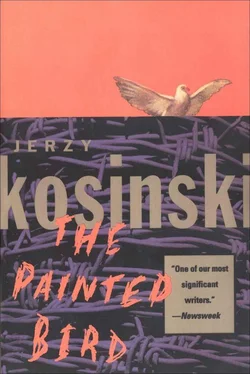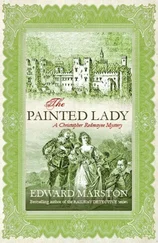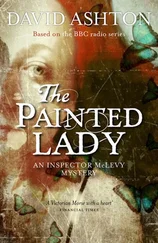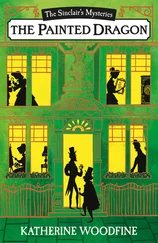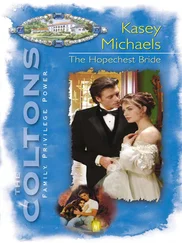Jerzy Kosiński - The Painted Bird
Здесь есть возможность читать онлайн «Jerzy Kosiński - The Painted Bird» весь текст электронной книги совершенно бесплатно (целиком полную версию без сокращений). В некоторых случаях можно слушать аудио, скачать через торрент в формате fb2 и присутствует краткое содержание. Год выпуска: 1965, ISBN: 1965, Жанр: Детская проза, на английском языке. Описание произведения, (предисловие) а так же отзывы посетителей доступны на портале библиотеки ЛибКат.
- Название:The Painted Bird
- Автор:
- Жанр:
- Год:1965
- ISBN:978-0-8021-9575-3
- Рейтинг книги:4 / 5. Голосов: 1
-
Избранное:Добавить в избранное
- Отзывы:
-
Ваша оценка:
- 80
- 1
- 2
- 3
- 4
- 5
The Painted Bird: краткое содержание, описание и аннотация
Предлагаем к чтению аннотацию, описание, краткое содержание или предисловие (зависит от того, что написал сам автор книги «The Painted Bird»). Если вы не нашли необходимую информацию о книге — напишите в комментариях, мы постараемся отыскать её.
The Painted Bird — читать онлайн бесплатно полную книгу (весь текст) целиком
Ниже представлен текст книги, разбитый по страницам. Система сохранения места последней прочитанной страницы, позволяет с удобством читать онлайн бесплатно книгу «The Painted Bird», без необходимости каждый раз заново искать на чём Вы остановились. Поставьте закладку, и сможете в любой момент перейти на страницу, на которой закончили чтение.
Интервал:
Закладка:
The Kalmuks were now dragging a half-naked woman out of a house. She struggled and screamed, trying in vain to catch her tormentors by the legs. A group of women and girls was being rounded up with horsewhips by some laughing riders. The fathers, husbands and brothers of the women ran about begging for mercy, but were chased away with horsewhips and sabers. A farmer ran through the main street with his hand cut off. Blood was spurting from the stump while he kept looking for his family.
Nearby the soldiers had forced a woman to the ground. One soldier held her by the throat while others pulled her legs apart. One of them mounted her and moved on top of her to shouts of encouragement. The woman struggled and cried. When the first was done the others assaulted her in turn. The woman soon grew limp and did not fight back any more.
Still another woman was brought out. She screamed and begged, but the Kalmuks stripped her and threw her on the ground. Two men raped her at once, one in the mouth. When she tried to twist her head aside or close her mouth she was lashed with a bullwhip. Finally she weakened and submitted passively. Some other soldiers were raping from the front and from the back two young girls, passing them from one man to the next, forcing them to perform strange movements. When the girls resisted, they were flogged and kicked.
The screams of raped women were heard in all the houses. One girl somehow managed to escape and ran out half naked, with blood streaming down her thighs, howling like a whipped dog. Two half-naked soldiers ran after her, laughing. They chased her around the square amidst the laughter and jokes of their comrades. Finally they caught up with her. Weeping children looked on.
New victims were being caught all the time. The drunken Kalmuks became more and more aroused. A few of them copulated with each other, then competed in raping women in odd ways: two or three men to one girl, several men in rapid succession. The younger and more desirable girls were nearly torn apart, and some quarrels broke out among the soldiers. The women sobbed and prayed aloud. Their husbands and fathers, sons and brothers, who were now locked in the houses, recognized their voices and responded with maddened shrieks.
In the middle of the square some Kalmuks displayed their skill in raping women on horseback. One of them stripped off his uniform, leaving only his boots on his hairy legs. He rode his horse in circles and then neatly lifted off the ground a naked woman brought to him by the others. He made her sit astride the horse in front of him, and facing him. The horse broke into a faster trot, the rider pulled the woman closer making her lean her back against the horse’s mane. At every lunge of the horse he penetrated her afresh, shouting triumphantly each time. The others greeted his performance with applause. The rider then deftly turned the woman around so that she faced forward. He lifted her slightly and repeated his feat from the back while clutching her breasts.
Encouraged by the others, another Kalmuk jumped on the same horse, behind the woman and with his back to the horse’s mane. The horse groaned under the load and slowed down, while the two soldiers raped the fainting woman simultaneously.
Other feats followed. Helpless women were passed from one trotting horse to another. One of the Kalmuks tried to couple with a mare; others aroused a stallion and tried to push a girl under it, holding her up by her legs.
I crept deeper into the bushes, overwhelmed by dread and disgust. Now I understood everything. I realized why God would not listen to my prayers, why I was hung from hooks, why Garbos beat me, why I lost my speech. I was black. My hair and eyes were as black as these Kalmuks’. Evidently I belonged with them in another world. There could be no mercy for such as me. A dreadful fate had sentenced me to have black hair and eyes in common with this horde of savages.
Suddenly a tall white-haired old man came out of one of the barns. The peasants called him “The Saint” and perhaps he thought of himself as such. He held with both hands a heavy wooden cross and he wore on his white head a wreath of yellowed oak leaves. His sightless eyes were lifted to the sky. His bare feet, deformed by age and disease, sought a path. The words of a psalm came in a mournful dirge from his toothless mouth. He was pointing the cross at his unseen enemies.
The soldiers sobered for a moment. Even the drunken ones eyed him uneasily, visibly disturbed. Then one of them ran up to the old man and tripped him. He fell down and lost his grip on the cross. The Kalmuks jeered and waited. The old man tried with stiff movements to raise himself, groping for the cross. His bony, gnarled hands searched the ground patiently while the soldier flipped the cross away with his foot as he got close to it. The old man crawled around babbling and moaning softly. Finally he was exhausted and breathed heavily with a hoarse wheeze. The Kalmuk lifted the heavy cross and stood it upright. It balanced for a second, and then toppled onto the prone figure. The old man moaned and ceased to move.
A soldier threw a knife at one of the girls who was trying to crawl away. She was left bleeding in the dirt; no one paid any attention to her. Drunken Kalmuks handed women spattered with blood from one to another, beating them, forcing them to perform odd acts. One of them rushed into a house and brought out a small girl of about five. He lifted her high so that his comrades could see her well. He tore off the child’s dress. He kicked her in the belly while her mother crawled in the dust begging for mercy. He slowly unbuttoned and took down his trousers, while still holding the little girl above his waist with one hand. Then he crouched and pierced the screaming child with a sudden thrust. When the girl grew limp he threw her away into the bushes and turned to the mother.
In the doorway of a house some half-naked soldiers were fighting a powerfully built peasant. He stood on the threshold swinging an ax in wild fury. When the soldiers finally overcame him, they dragged a fear-numbed woman out of the house by her hair. Three soldiers sat on the husband, while the others tortured and raped his wife.
Then they dragged out two of the man’s youthful daughters. Seizing a moment when the Kalmuks’ grip on him loosened, the peasant jumped up and dealt a sudden blow to the nearest one. The soldier fell down, his skull crushed like a swallow’s egg. Blood and white pieces of brain resembling the meat of a cracked nut spilled through his hair. The enraged soldiers surrounded the peasant, overpowered him, and raped him. Then they castrated him in front of his wife and daughters. The frantic woman rushed to his defense, biting and scratching. Roaring with delight, the Kalmuks held her fast, forced her mouth open, and pushed the bloody scraps of flesh down her throat.
One of the houses caught fire. In the resulting commotion some peasants ran for the forest, dragging with them half-conscious women and stumbling children. The Kalmuks, firing at random, trampled some of the people with their horses. They captured new victims whom they tortured on the spot.
I hid in the raspberry bushes. Drunken Kalmuks were wandering around, and my chances of remaining there unnoticed were dwindling. I could not think any more; I was frozen with terror. I closed my eyes.
When I opened them again I saw one of the Kalmuks staggering in my direction. I flattened myself on the ground even more, and nearly stopped breathing. The soldier picked some raspberries and ate them. He took another step into the bush and trod on my outstretched hand. The heel and the nails of his boot dug into my skin. The pain was excruciating but I did not move. The soldier leaned on his rifle and urinated calmly. Suddenly he lost his balance, stepped forward, and stumbled over my head. As I jumped up and tried to run he grabbed me and struck me in the chest with the butt of his rifle. Something cracked inside. I was knocked down, but I managed to trip the soldier. As he fell I ran zigzagging away toward the houses. The Kalmuk fired, but the bullet ricocheted off the ground and whizzed by. He fired again but missed. I tore off a board from one of the barns, climbed in and hid in the straw.
Читать дальшеИнтервал:
Закладка:
Похожие книги на «The Painted Bird»
Представляем Вашему вниманию похожие книги на «The Painted Bird» списком для выбора. Мы отобрали схожую по названию и смыслу литературу в надежде предоставить читателям больше вариантов отыскать новые, интересные, ещё непрочитанные произведения.
Обсуждение, отзывы о книге «The Painted Bird» и просто собственные мнения читателей. Оставьте ваши комментарии, напишите, что Вы думаете о произведении, его смысле или главных героях. Укажите что конкретно понравилось, а что нет, и почему Вы так считаете.
